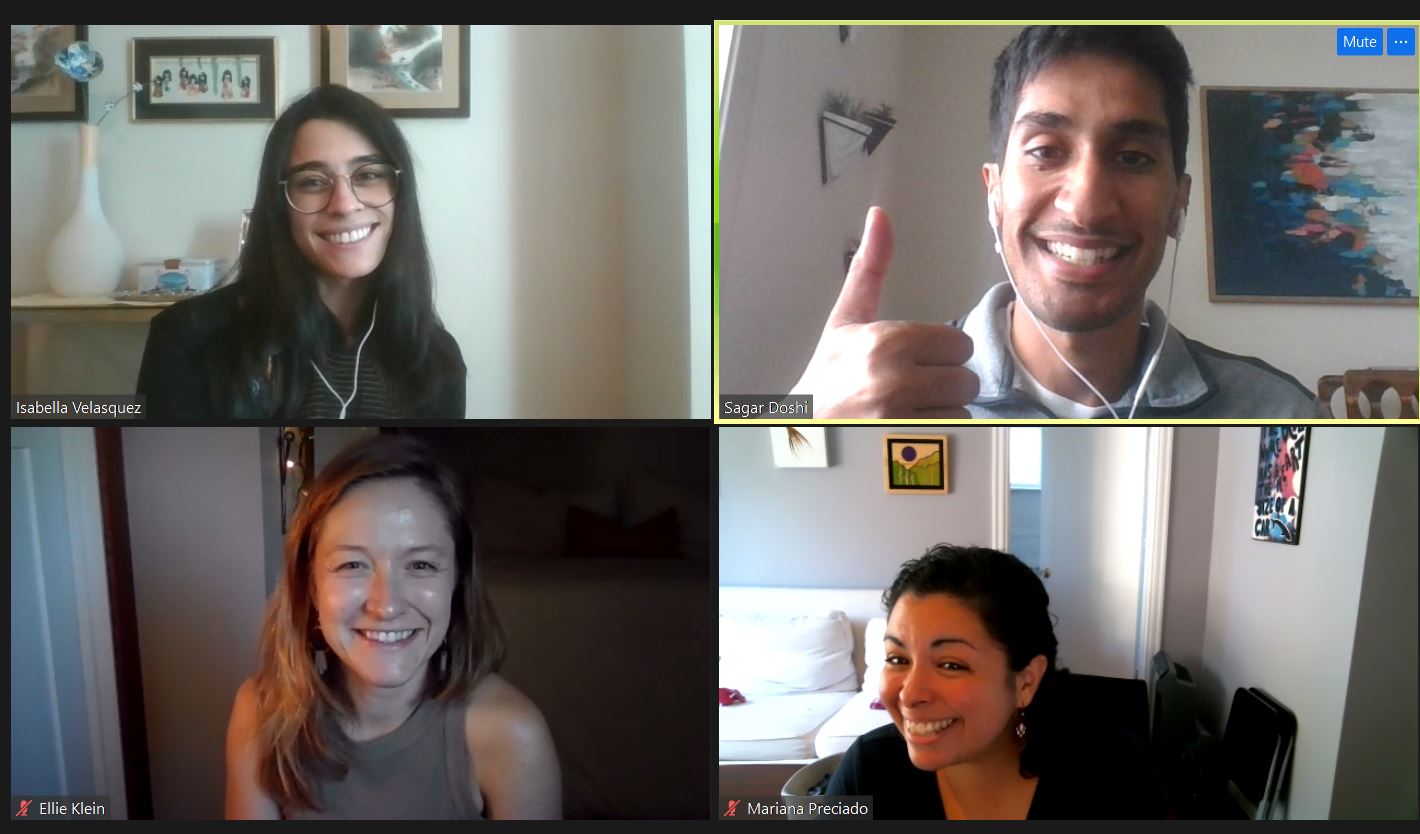Farmcation: From Dream to Launch

By Caitlyn Toombs, MBA 16, and Grace Lesser, MBA/MPH 16
The idea started with a wedding. It became a business at Haas.
This is the origin story of Farmcation: a company that seeks to change the way we think about food. What follows is a journey through Berkeley-Haas, which gave us (its founders) the support and resources needed to incubate the concept from initial idea to veritable business.
Farmcation is a marketplace that links food-curious consumers with local farmers and producers through unique and authentic food and farming-focused experiences. These experiences, which include events such as farm-to-table dinners, farm tours, and workshops on canning, jamming, or cheesemaking, are created and curated with the intention of building community through food.
Farmcation aims to support small-scale farmers and food producers to generate additional revenue through hosting value-added events. Consumers are increasingly interested in knowing the source of their food and in paying for authentic experiences rather than material things; however, experiences focused on food and farming can often be difficult to come by – even in our own backyard.
Being connected to the process of growing and making food through experiences can transform one’s relationship with food; we believe that there is an opportunity to make these experiences easier to find and enjoy. Farmcation connects people with the food they eat, the land it’s grown on, and the people who produce it. We bring foodies and makers together, creating community through food.
We are both longtime food lovers, so it makes sense that we would find ourselves working on a food-related venture: Grace comes from a family of bakers, grew up on a farm in Western Massachusetts and worked in public health nutrition and agriculture abroad; Caitlyn, a New Jersey native who very much misses the bagels, moved out west after college and – knowing no one – built her community by working her way through an ever-growing list of the Bay Area’s best dishes. To both of us, food is much more than sustenance; it represents community.
Last summer, Grace moved back to her family farm in Western Massachusetts with one goal: to grow the food to feed 250 guests at her wedding in August. She and her husband cultivated an acre of vegetables and raised 65 chickens, and through the process of growing food and feeding their wedding guests, she learned firsthand the power of building community through launching a common language around food. Caitlyn also witnessed the power of this experience as a guest at their wedding.
Back at Haas this past fall, the concept of Farmcation was kicked around informally among friends, particularly while reminiscing about Grace’s farm wedding or while planning trips or weekend adventures. We dreamed about what Farmcation at scale might look like: a series of popup dinners in wine country, an afternoon of apple picking…maybe even a week working an olive oil farm in Italy?
That fall, we each registered for Jorge Calderon’s “Impact Disco” – a one-credit, weekend-long crash course focused on channeling the Lean Launchpad methodology to create a business with a mission. We had no plans of pitching Farmcation before we arrived, but at the last minute we decided to take a risk and go for it. With the help of two other Haasies (h/t to 2016 FTMBAs Julia Wasserman and Carly Olson!), we spent the weekend ideating, pivoting and building. Through countless conversations with farmers and customers across the US and beyond, we uncovered the first of many valuable learnings for Farmcation, built a prototype for our website, and refined the concept for our business to focus on a targeted geography and customer population.
We left the Impact Disco weekend feeling energized and excited about Farmcation, but were unsure how to bring it beyond the classroom. Our interest in pursuing the concept further deepened while taking Will Rosenzweig’s Food Venture Lab (though we had each joined other teams), where we gained additional skills in prototyping and business model design. After securing a grant through the Dean’s Startup Seed Fund, it bolstered our confidence and gave us resources to take some risks and get Farmcation up and running. Caitlyn built the website while Grace joined Eat.Think.Design and engaged an interdisciplinary team of students from the Business School, the Public Policy School, and the School of information. The team conducted in-depth customer research and networked with farmers to better understand the needs of our two-sided market. Finally, at the spring semester drew to a close, we executed our first trial Farmcation.
Our first Farmcation was a partnership with Terra Firma Farm and Chef Gabriel Sanders of Hearth and Cellar Dinner Club in Winters, California. Customers toured the farm and picked strawberries before enjoying a pop-up lunch with hyper-locally sourced ingredients and a wood fire-roasted local lamb. Guests went home with a curated CSA box of organic Terra Firma produce to last the rest of the week, and spread awareness about the farm’s CSA program. Foodies, farmers, and makers shared conversation around the lunch table, each providing positive feedback about their experience. We shared our thoughts on the experience at the Eat.Think.Design innovation feast, and received coverage in Fast Company for our work.
As our time at Haas draws to a close, we are eager to see what Farmcation can become. In the near term, we’re focused on building more farm partnerships, hosting more beta events, and refining our technology platform. Reflecting on our progress thus far, the following key lessons have emerged:
- Take risks! Even putting ourselves out there by pitching Farmcation in Impact Disco and in Eat.Think.Design felt like major risks. Powering through those fears and believing in our vision got the ball rolling for us – and it gave us the energy to try bigger risks later.
- Take the time and energy to figure out what you don’t know. Our idea changed – a lot – as we talked to people who knew more than we did about food, farming, and everything else in between.
- Never underestimate the power of the people around you. The Haas community has not ceased to amaze us, from contacts, feedback, spreading the word, and generally offering us the support to take Farmcation to the next level.
We’re grateful for our journey thus far and are excited to grow Farmcation to reach to more foodies and farmers across the Bay Area. In the meantime, join our mailing list, follow us on Instagram and share our work with your friends. And please, email us if you know of any farms who’d like to host a Farmcation, or web developers who’d be interested in working with us part-time.
We look forward to staying in touch!


